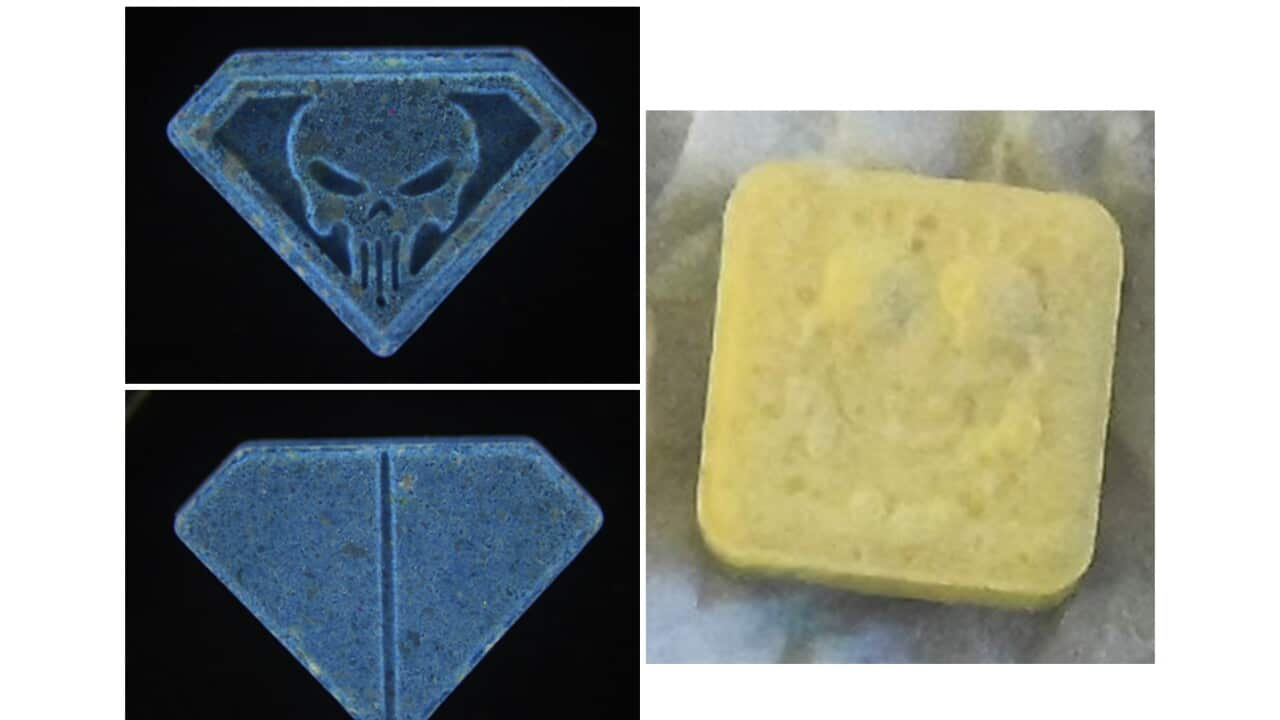Listen to Australian and world news, and follow trending topics with SBS News Podcasts.
TRANSCRIPT
The Victorian government is facing calls to reassess its stance on pill testing following the recent death of a 23-year-old man from a suspected drug overdose.
The tragic death occurred after the man was airlifted to hospital from the Pitch Music and Arts Festival, which was cancelled due to dangerous heat conditions and extreme fire danger.
Two other people also received medical treatment after suspected overdoses.
The death comes after Victorian Premier Jacinta Allan said in January she was seeking further advice on pill testing, after eleven people were hospitalised following suspected M-D-M-A overdoses at festivals across the state.
Victorian Greens Drug Harm Reduction Spokesperson Aiv Puglielli says the government cannot afford to delay pill testing any longer.
"The advice is clear, and it has been for years now, both internationally and here at home - pill testing saves lives. We know that we cannot prevent this senseless loss of life, senseless harm that is facing young Victorians, but to do that we need to get pill testing up and running, we need it at our music festivals as a matter of priority."
Ms Allan's comments have signalled a shift on the issue, after former Premier Daniel Andrews repeatedly ruled out pill testing during his tenure.
He was among several state premiers to adopt what critics have described as a just say no policy, rejecting pill testing as a way of reducing illegal drug harm.
They include the Premier of New South Wales, Chris Minns, who dismissed the idea of testing this summer, and the governments of South Australia and Tasmania, although former chief minister of the Northern Territory Michael Gunner said he was open to the idea in 2021.
WA Premier Roger Cook has so far also upheld his predecessor Mark MacGowan's self-proclaimed tough on drugs stance.
That leaves just the ACT and Queensland as the only Australian jurisdictions where drug checking trials have been approved.
Stephanie Tzanetis is coordinator for Directions Health at CanTEST, the A-C-T's fixed site pill testing service.
She's also the Executive Officer at Pill Testing Australia, which provided Australia's first on-site music festival pill testing at Groovin the Moo in 2018.
She says results from the first six months of the ACT trials, which were independently evaluated by the Australian National University, show drug testing significantly reduces, but doesn't remove all drug harms.
"If a person had a substance that ended up being different to what the expectation was, so they thought they had MDMA and it was something more dangerous and they accessed the drug checking service. We see that when something is not what people expect and dangerous, it's quite common to discard it. So that completely removes the risk in that scenario. But if a person was expecting MDMA and the results came back as MDMA, then there is an opportunity for education."
Dr Thomas Norman is a Research Fellow at La Trobe University’s Australian Research Centre in Sex, Health and Society, who has run public health studies at music festivals.
He says rather than just giving drug users the go-ahead if a drug is what they expected, pill testing can help facilitate better decisions about potentially very harmful situations.
"The thing about pill testing is that they never actually tell you whether a drug is safe. They tell you quite the opposite. And what it's aiming to do is to change people's behavior. We're looking for someone to either discard the substance that they've got or at the bare minimum use less of that substance that they're aiming to do. So it's not just about telling people what drug they have, but it's an opportunity for people to have a one-on-one conversation with a health professional, and they can provide some really tailored advice."
Dr Norman says with overdoses of so-called party drugs like M-D-M-A common at festivals and clubs nationwide, the presence of both forms of testing could help create a national drug safety network.
"The first of these is a fixed site testing service - you know, you go into a building and they have the service in the building, and then we have mobile testing services, which would be the ones that would pop up at a music festival. Not only do they offer an opportunity to chat to someone who's intending on taking a drug, but also if we find a potentially harmful drug, then we can issue a national-wide drug alert."
Dr Norman says this can help regulate the black market, forcing dealers to remove dangerous drugs from circulation.
CanTEST has already issued warnings about a range of drugs, from pink cocaine to dangerous opioids, and a synthetic form of ketamine dubbed "CanKet".
With widespread drug checking already rolled out in more than 20 countries worldwide, including the U-S, U-K, and Switzerland, Ms Tzanetis says public support is growing in Australia.
"CanTEST has been running now for 20 months and it takes a while for people to become familiar with the service and trust it, but it's only received really positive reports in the evaluation. We can see from the household drug survey which came out in the last fortnight, it's the largest survey regarding drug use that's conducted in Australia, and it showed that the popular support for drug checking has increased."
The National Drug Strategy Household Survey has found support for drug checking services has increased from 57 per cent in 2019, to 64 per cent in 2022-23.
And amid increasing political pressure for trials in several states, Stephanie Tzanetis says Pill Testing Australia is ready to roll out its services.
"We have the equipment, we have the experience and the testing methods, so the program already exists, so it's just a case of allowing it to occur. Setting up something that's a fixed site and permanent takes a bit more time, but really if the knowledge is there, the biggest hurdle is political willingness."
But she and Dr Norman are keen to stress that pill testing is not the only answer, especially when other factors are involved, like extreme heat.
She says the advice is to avoid taking stimulants on days when the temperature is 24 degrees or above.
Dr Norman says advice like this is part of a toolkit of different approaches needed to reduce drug harm.
"Things like MDMA, for example, they can really disrupt your ability to regulate your body heat, and that can create some important health concerns for people. So if someone comes to a service and they get their substance checked, they'll be having a conversation with a health professional who can give them specific advice about the temperature, about all the sorts of things that they need to consider when it comes to taking this drug - that they should be hydrating, that they should be seeking shelter, that they shouldn't be dancing in amongst a hundred or a thousand other bodies. It's all part of the sort of larger picture in how we keep people safe with these events."













